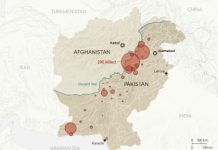The China-Taiwan relationship remains one of the most sensitive geopolitical fault lines in the modern world. With Taiwan’s newly elected president Lai Ching-te taking office under a firm pro-sovereignty stance, and China responding with aggressive military drills around the island, tensions are at their highest in years. The specter of a possible military conflict looms large, raising questions not only about regional stability but also about the global economic and political order.
Beijing views Taiwan as a breakaway province that must eventually be reunified with the mainland, by force if necessary. This “One China” principle has been a cornerstone of Chinese foreign policy for decades. Taiwan, on the other hand, functions as a de facto independent state with its own government, military, and democratic institutions. The election of a leader from the Democratic Progressive Party (DPP), which leans toward formal independence, has only deepened the divide.
China’s latest military maneuvers—simulating a blockade and potential strike—are a clear signal to both Taiwan and its allies, especially the United States. Beijing wants to convey that any moves toward formal independence will not be tolerated and could invite a military response. While a full-scale invasion remains a high-risk option fraught with economic and political costs, the possibility cannot be ruled out, especially if Beijing perceives a narrowing diplomatic or strategic window.
In this volatile environment, Pakistan has maintained a consistent and principled position. As a longstanding strategic partner of China, Pakistan firmly adheres to the “One China” policy. Islamabad recognizes the People’s Republic of China as the sole legal government representing all of China, including Taiwan. This stance has been reiterated on numerous occasions, both bilaterally and at international forums, and is unlikely to change.
Pakistan’s support is rooted not only in diplomatic solidarity but also in the broader context of its deepening ties with China—most notably through the China-Pakistan Economic Corridor (CPEC), a flagship project of the Belt and Road Initiative. As such, any confrontation in the Taiwan Strait would have implications for regional connectivity and trade, making stability in the Asia-Pacific a strategic priority for Islamabad as well.
As for Taiwan’s future, much depends on the delicate balance between deterrence and diplomacy. The U.S. and its allies continue to support Taiwan’s defense capabilities, but without extending formal diplomatic recognition. This ambiguity, known as “strategic ambiguity,” is intended to prevent both a unilateral declaration of independence by Taiwan and a preemptive strike by China.
The stakes are enormous. Taiwan is a key player in the global semiconductor industry, and any conflict would disrupt global supply chains. Moreover, military action could escalate into a broader regional war, drawing in major powers and destabilizing Asia-Pacific markets.
While the Taiwan issue remains unresolved, military action remains a last resort that Beijing will likely avoid unless provoked. Pakistan, for its part, will continue to support China’s position diplomatically while advocating for peace and stability in the region. In an increasingly polarized world, balanced, principled diplomacy remains the best path forward.

















